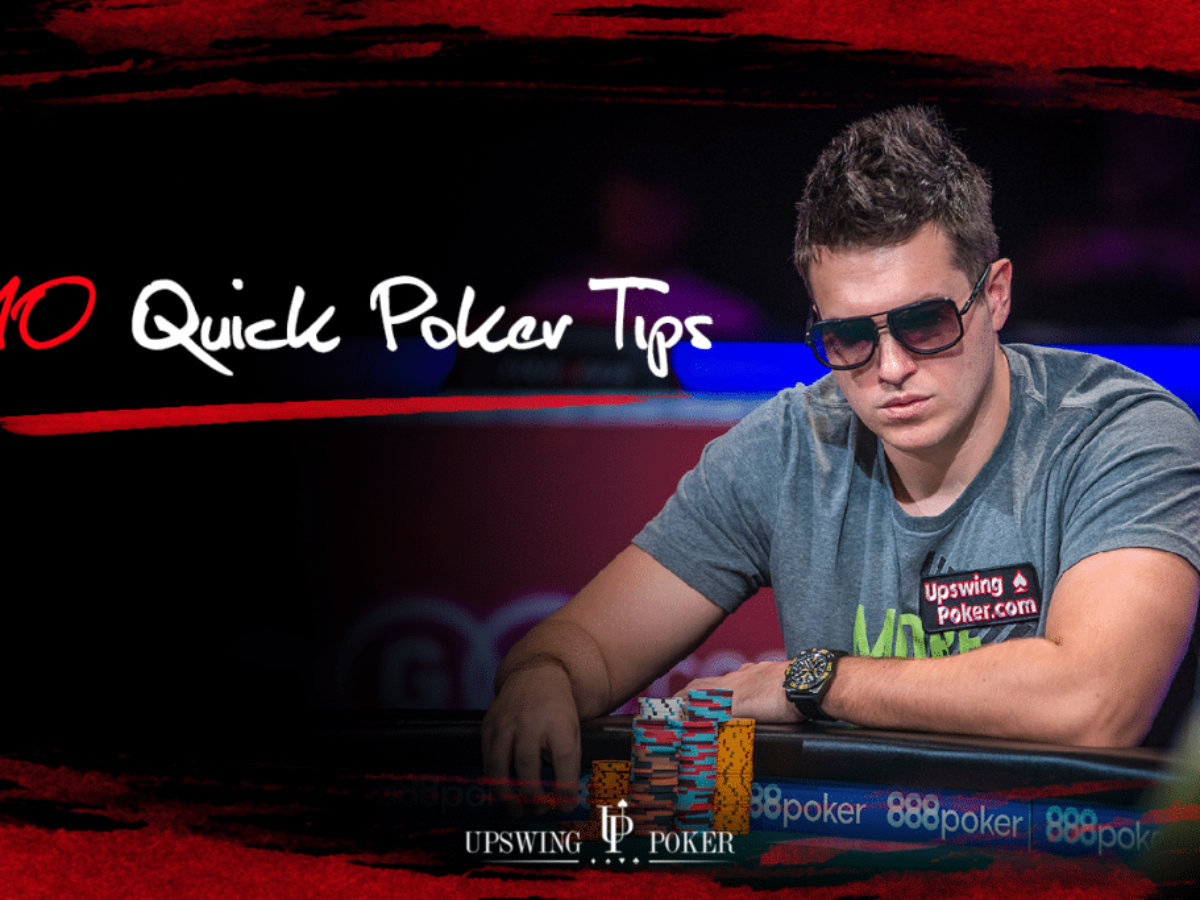Holdem Tips


To be a truly great Texas Hold 'Em Poker player, you need to be able to read your opponents, ascertaining when they are bluffing and when they really have a solid hand. But learning some basic strategies and general rules will go a long way toward making sure you can at least hold your own in a friendly game. Two Things to Always Remember. The little 's' stands for 'suited' and the 'o' for 'unsuited' or 'of suit'. Good starting hands are those hands which either don't need to hit the flop (like big pairs) or often make the best hand when they do hit the flop. These hands make the best possible flushes and make top pairs with very strong second cards ('kickers'). One of my top Texas Holdem tips is to always be aware of what type of poker player you are up against. For example, you will frequently encounter Nits, TAGs, LAGs, SLAGs, fish and so on. Here is a complete list by the way of all the poker player types and how to beat each one.
Good starting hand selection is very important
If you structurally choose to play better hands than your opponents then you will already have a great advantage over them. Especially if you are just starting out in Texas hold'em then good starting hand selection will keep you out of trouble after the flop.
The top ten best Texas hold'em starting hands
1 2 3 4 5 6 7 8 9 10 AA KK QQ JJ AKs AQs TT AKo AJs KQs The little 's' stands for 'suited' and the 'o' for 'unsuited' or 'of suit'. Good starting hands are those hands which either don't need to hit the flop (like big pairs) or often make the best hand when they do hit the flop. These hands make the best possible flushes and make top pairs with very strong second cards ('kickers').
The worst Texas hold'em starting hands
1 2 3 4 5 6 7 8 9 10 72o 82o 73o
83o26 29
39
492To 59o 47
48
58
63Q3o
K2o
J5oA2o
A4o
A6oThe bad starting hands do not offer the possibility to hit a straight or flush with both cards; they are unconnected and unsuited. They will hit low pairs or top pairs with bad kickers and will lose you chips when your opponent hits the same pair with a better kicker. Don't play these hands. They will get you in trouble more often than not.
Keep an eye on your position
If you have the button or are close to the right of the dealer then you will be very likely to act last after the flop. This gives you an informational advantage over your opponents: you can see what they do before you have to act. Try to take advantage of this by playing more hands 'in position' then 'out of position'; play most of your hands when you are (close to the right of) the dealer.
Do not overplay single pair hands
Putting a lot of your chips in the pot with just a single pair rarely is a good idea. If you have a middle pair or a top pair with a weak kicker and are facing strong bets from your opponent then you are usually beat. Fold, keep an eye on this opponent and win your chips back when you are the one with the stronger hand and he or she isn't able to let go of the weaker hand like you did.
Don't slowplay big pairs
Big pairs like aces, kings and queens are great hands to be putting a lot of chips in the pot with unless you see the flop with many opponents. Then the chance of someone hitting a better hand than you will be bigger. Just raise your big pairs pre-flop to fold out the weaker hands that might flop a lucky two pair otherwise and to give yourself a higher chance of winning the hand.
Try to be the aggressor
If you are aggressive, meaning that you bet and raise a lot instead of just calling, then you give your opponent the option to fold to your bets. By taking initiative and being aggressive you therefore give yourself an extra possibility of winning the hand. Don't overdo it though; you don't want to be aggressive with a hand that would deserve a fold instead.
If you're playing the board, your opponent can see your hand
What this means is that if you make a hand with both your hole cards it will be more concealed for your opponents and the chance of your hand being second best is generally smaller. Don't draw to a one card straight, because it will be obvious to other players when there are four cards to a straight on the board. You will either win very little, or lose a lot to the player that uses both his hole cards to make a better straight.
Eventually knowing the odds is important
Having a rough idea of the odds of hitting your draws and of how to calculate pot odds is very important in order to play winning poker. Although for the first time poker player pot odds is not a subject to directly dive into (it takes some time to learn), it surely will be rewarding to follow this pot odds guide when you decide to play poker more often.
You can't win more than your opponent's stack
As obvious as it may sound, the smallest stack of you and your opponent will be the limit as to what you can win in no-limit games. If this stack is very small, it might not be rewarding enough to chase certain draws as you won't be able to win enough when you hit to make up for the times you miss and lose. Your 'implied odds' aren't high enough.
Holdem Tips
He provides a mathematical proof for this in his advanced holdem strategy book, Applications of No-Limit Hold’em. Applications shows that in order to bet with a balanced range (a range composed of the optimal number of value bets and bluffs) on the river, we need to bluff less on each progressive street. In Texas Holdem, figure out what the best possible hand would be to fit the flop. Make sure you notice flush and straight possibilities. In 7-card stud, pay attention to what's showing and what people have folded when you consider calling opponents. Make sure you can pick out which hand wins in Texas Hold'em.